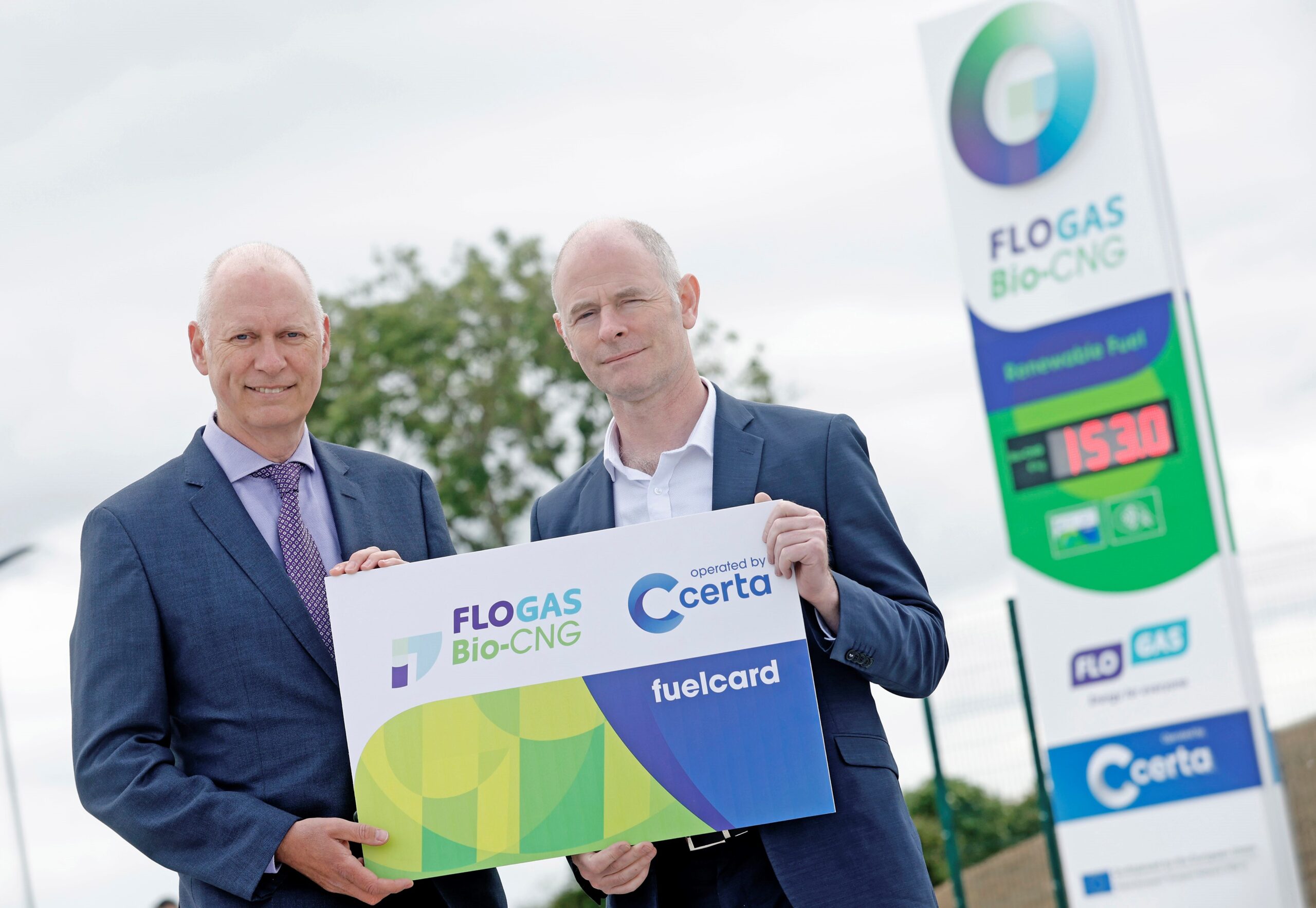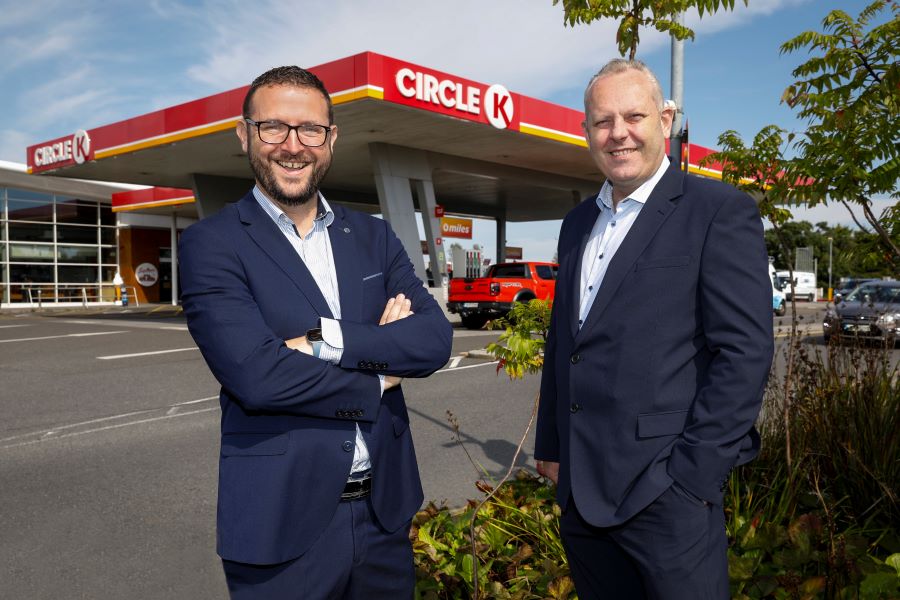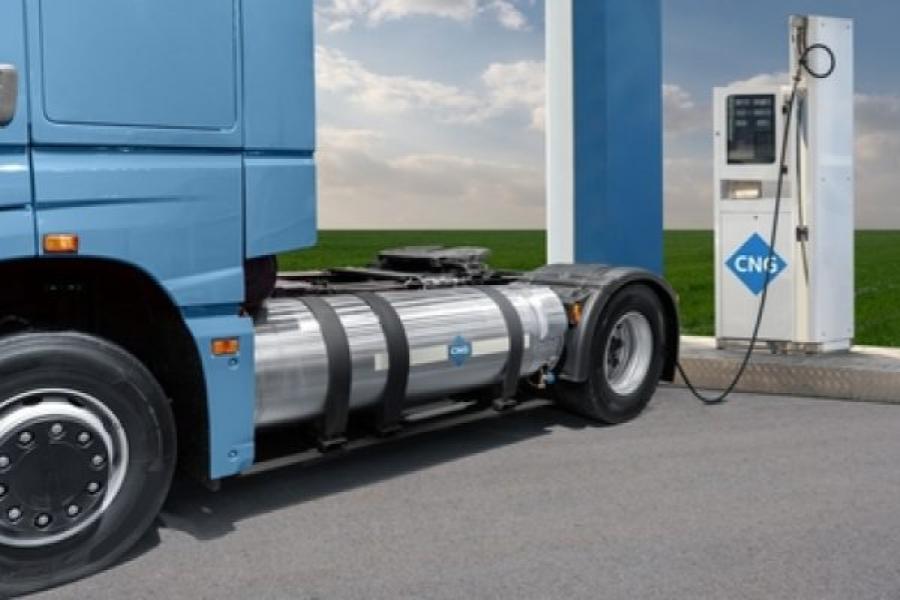Bio-CNG
A greener, more efficient alternative for commercial trucks and fleets.
BioCNG is available at Flogas Barberstown, in Saint Margaret’s Co. Dublin.
For more information on how BioCNG can help your business please contact cng@flogas.ie.
For guidance on how to correctly utilise the station please review our user guide.
Dedicated to helping businesses reduce their transport emissions
On 11th of June 2024, Flogas opened the first ever dedicated Bio-CNG refuelling self-service station in the Republic of Ireland – a significant step forward in our commitment to sustainability and clean energy solutions for businesses across the country.
Bio-CNG is a great option for companies to use in their transport fleet as it emits up to 90% less carbon emissions than alternative heavy fuels.
What is Bio-CNG?
BioCNG is a renewable form of natural gas made from organic waste, produced by breaking down things like food waste and agricultural leftovers in a process called anaerobic digestion.
The resulting biogas is purified to remove impurities and increase its energy content, creating Bio-CNG.
Related news and insights
June 11, 2024
Flogas, a DCC business, officially opens the Republic of Ireland’s [...]
September 6, 2023
Businesses across Ireland can now, for the first time, purchase [...]
November 24, 2022
Commercial fleets are converting from diesel to Compressed Natural Gas Bio CNG, a more predictable, cost-effective, and cleaner solution
We have helped businesses like yours manage their energy more efficiently and make progress towards a sustainable energy future.

“Ballygowan, Ireland’s iconic water brand, has a long history of harnessing the best of Ireland’s natural resources to deliver sustainable, locally produced, Irish natural mineral water. This new Corporate Power Purchase Agreement with Flogas Enterprise, valued at €2.5 million, will produce renewable electricity for our production facility in Newcastle West and is a significant investment in our long-term strategy to ensure 100% sustainability across Britvic Ireland’s business operations.”

“Our mission is to become carbon neutral by 2030 and this is an important step in cutting our carbon emissions. It will enable our business to become more sustainable and provide us with a long-term solution to our requirements. It also reflects our values and desire to do our part in the community to lead the way in responding to climate change. We are replacing our existing energy sources with sustainable, more environmentally friendly alternatives with the focus on a sole use of electricity from renewable energy sources.”

“We are functioning in a time when large energy users have limited hedging options. In a volatile energy market, having a fixed price for the supply of electricity through a CPPA is not only good for the environment, but it is also great for budgeting. This solution was hedged at a price that is reflective of current market price level, but delivers budget certainty and sustainability benefits.”

“Our investments in renewable energy not only help to reduce carbon dioxide emissions from our operations in Ireland, but also, together with our energy efficiency efforts, help to control our electricity costs so we can pass any benefits to our customers by continuing to offer high quality home furnishings at low prices. Companies, individuals or governments – we all have responsibility to address the resource dilemma and commit to a more sustainable future. Producing our own, affordable, renewable electricity gets us one step closer to becoming completely energy independent by 2020, while ensuring our commercial success”







